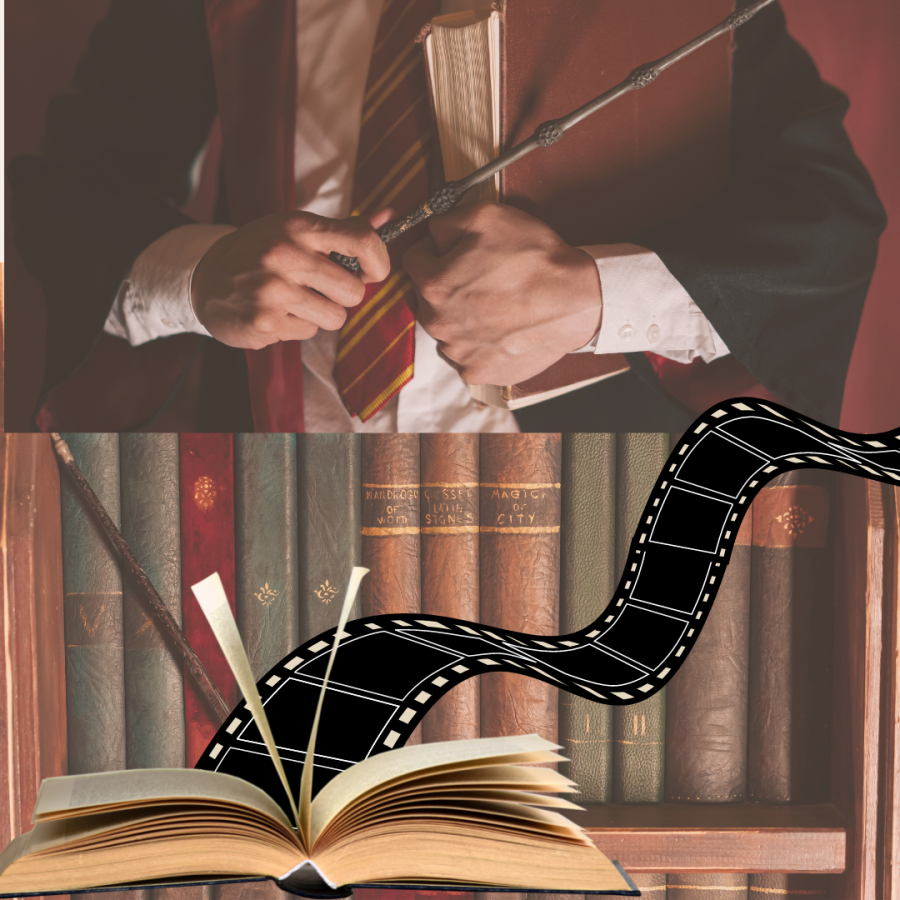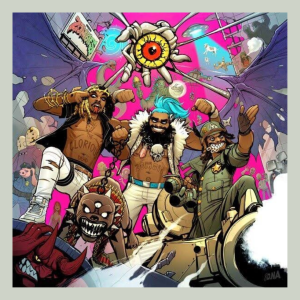Book to movie adaptations
September 26, 2022
For those of us that have an affinity for literature, book to movie adaptations can be a love hate relationship. In some cases, the movie counterpart fulfills our literary dreams, portraying all the best moments with incredible music, graphics and actor portrayals. In other times, some of the most important moments of the novel are unfortunately left out. Or even worse, the actor’s performance fails to match up with what we imagined.
For me, the example that comes to mind immediately is Harry Potter. While I am a massive fan of all things Hogwarts, there are certain moments from the books that are left out of the cinematic universe.
For example, I cannot be the only one that felt cheated out of the opportunity to watch Charlie Weasley arriving via dragon to the Battle of Hogwarts. I also would have loved to watch a young Hermione Granger fighting vehemently for the rights of house elves by knitting them little hats. Even Harry Potter delivered one of the most iconic quips in history back to Professor Snape. “There’s no need to call me, sir, Professor,” anyone? It makes sense that these minute details had to be cut, but they are still so difficult to part with as a literary fanatic.
Most recently, Delia Owen’s novel, Where the Crawdads Sing, was developed into a movie. Produced by Reese Witherspoon and starring Daisy Edgar-Jones, Taylor John Smith and Harrison Dickinson, the adaptation was predicted to be one of the most exciting films of the year. Now that the film has been released, it is interesting to discover whether it met the expectations of readers. Movie critic, Christy Lemire, shared their thoughts on the film, and whether the pace of the movie matched that of the novel.
“You get the sensation that everyone involved felt the need to cram it all in, yet still maintain a manageable running time,” Lemire said. “If you’ve read the book, you know what happened to Chase Andrews; if you haven’t, I wouldn’t dream of spoiling it here. But I will say I had a variety of far more intriguing conclusions swirling around in my head in the car ride home, and you probably will, too.”
Another well-loved movie adaptation is based off of the Jane Austen classic, Pride and Prejudice. Starring Kira Knightley as Elizabeth Bennet and Matthew McFadyen as Mr. Darcy, the film is regarded as a comfort movie to fans of a classic love story. For those that hold a special love for the works of Austen, I can safely say the movie did a fantastic job of fulfilling expectations. From the perfect portrayal of Elizabeth Bennet and her fiercely independent self, to the notorious clenched fist of the madly in love Mr. Darcy, the film paints the picture that was in my mind to perfection. In a poll conducted by the general public, 63% of people voted to prefer the film adaptation over the original work. In my humble opinion, this is a stark contrast to the movie adaptation of another Austen classic, Persuasion.
While I admire Dakota Johnson as an actress, the 2022 adaptation of Persuasion was a hard one to love for me. Book Anne Elliot is a force to be reckoned with, being logical, independent, and confident. As one of Austen’s most mature works, the character is facing her problems with an adult mind. Her primary conflict is her overwhelming desire to put others before herself while still struggling to allow herself the desires of her heart. While this is the nature of book Anne, movie Anne is much more quirky and less confident. The movie begins with a distraught Anne crying in the bathtub over her long-lost lover, Mr. Wentworth. While this version of Elliot may be more relatable today, I still hate to see any change in the remarkable character of the novel version of Anne. Based on the Vox magazine article, “Netflix’s Persuasion is an absolute disaster,” by Constance Grady, it seems that I am not the only one who had these feelings towards the adaptation.
In her review Gady said, “In Netflix’s Persuasion, Anne takes on the mannerisms of the heroine of a mid-tier ’90s rom-com, weeping in the bathtub, weeping into copious amounts of red wine, weeping as she pratfalls into accidentally pouring gravy over her head. When she isn’t weeping, she is either mugging to the camera over her relatives’ foibles or blurting out non sequiturs in awkward social situations. “Sometimes I have a dream that an octopus is sucking my face,” she tells one party.”
To me, I think I will always prefer the original work in favor of a film adaptation. There is something authentic about the original piece that contains all the elements of the story and how they were intended by the author. Although it is usually only small pieces that are changed, it still alters the image enough to not match the quality of its novel counterpart. At the end of the day, I could never trade my love for paperback books and libraries for big movie screens.




